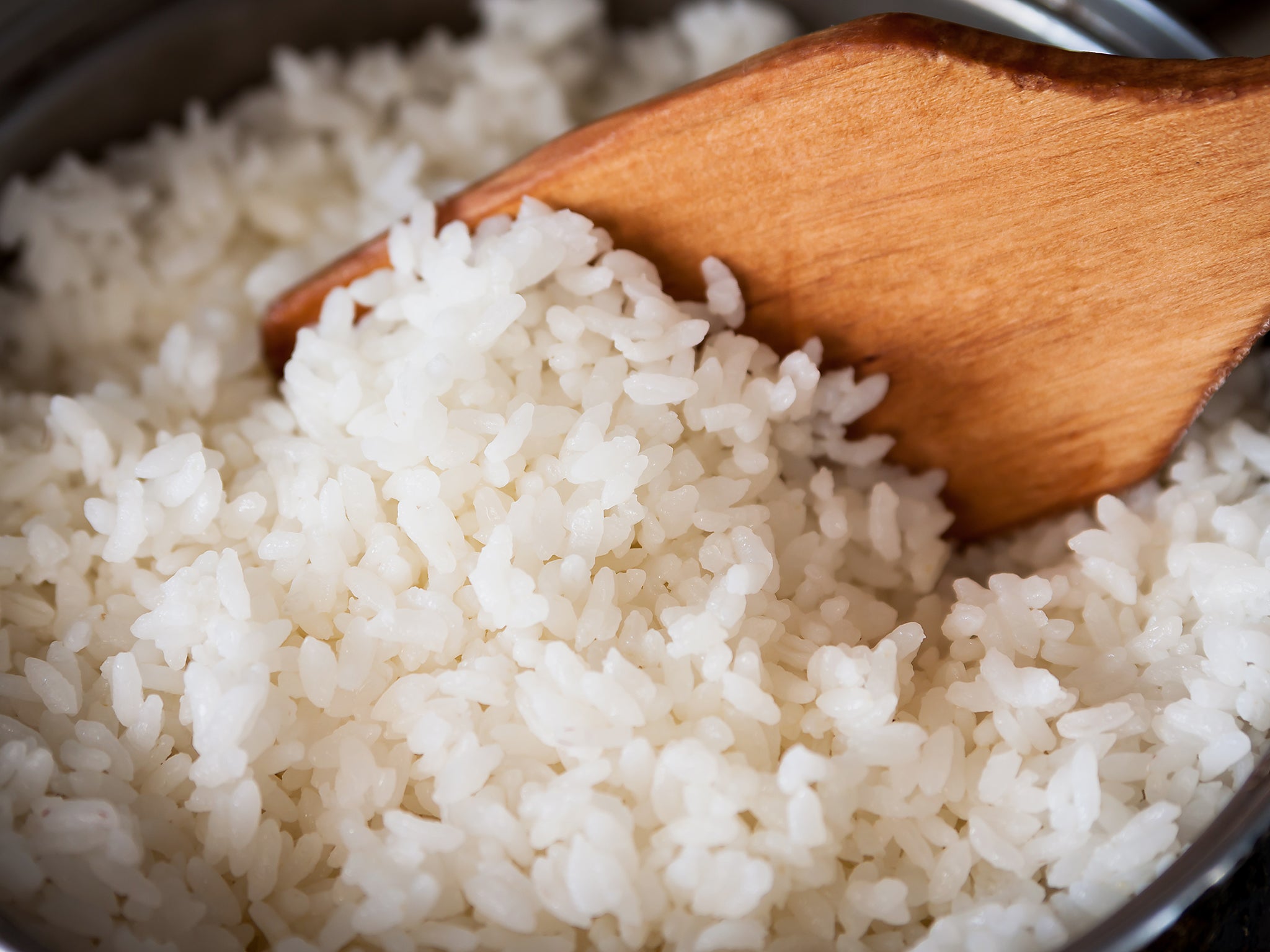Expert didn't feed any rice to infant children because of risk from naturally occurring arsenic
'Knowing that rice can contain elevated levels of arsenic, my family chose to pursue other types of infant cereals

Your support helps us to tell the story
From reproductive rights to climate change to Big Tech, The Independent is on the ground when the story is developing. Whether it's investigating the financials of Elon Musk's pro-Trump PAC or producing our latest documentary, 'The A Word', which shines a light on the American women fighting for reproductive rights, we know how important it is to parse out the facts from the messaging.
At such a critical moment in US history, we need reporters on the ground. Your donation allows us to keep sending journalists to speak to both sides of the story.
The Independent is trusted by Americans across the entire political spectrum. And unlike many other quality news outlets, we choose not to lock Americans out of our reporting and analysis with paywalls. We believe quality journalism should be available to everyone, paid for by those who can afford it.
Your support makes all the difference.A leading expert on the risks of arsenic in food has said his two children were not given any rice to eat when they were babies because of the potential health effects.
Arsenic, the 20th most common element in the Earth’s crust, can be absorbed naturally by plants from the soil and the potentially deadly toxin is also found in fossil fuel emissions, which can contaminate crops.
Researchers are becoming increasingly concerned by the potential health effects of low levels of arsenic in food.
While there is not enough to kill someone in the same way as the poison itself, it has been linked to cancer, heart and lung disease, diabetes, poor brain function in children, and a reduce immune system after extended exposure through diet.
Rice is particularly prone to the problem, partly because of the way it is often grown in flooded paddy fields, which increases the rate of absorption from the ground. Not all rice is affected — only crops grown in areas with high arsenic concentrations in the soil.
Infants are thought to be particularly at risk from arsenic in food, which is a problem as rice syrup is used in many products and some baby formula is made with rice.
Dr Keeve Nachman, of Johns Hopkins University in Baltimore, who was involved in an international research project looking at the risks and government policies about the issue, revealed at the American Association for the Advancement of Science’s annual meeting that his own children were not given rice when they were babies.
“I have two young children and I was in the process of working on various projects on dietary arsenic exposure [when they were born],” he said.
“Knowing that rice can contain elevated levels of arsenic, my family chose to pursue other types of infant cereals.”
But he added: “We do have rice in our diet now.”
Dr Nachman said it had been difficult to come up with a figure of how much arsenic it was safe to consume in food.
But he also said that “total avoidance” of dietary arsenic was “completely impossible”.
And so instead he and other experts recommended that people adopt a “prudent avoidance approach”, in which they make sure they are not consuming too many foods like rice that can contain higher amounts of arsenic.
He pointed people to a website called Arsenic and You, which lists some of the foods concerned and offers alternatives.
It suggests gardeners in areas with high levels of arsenic in the soil should limit the amount of lettuce, radishes, broccoli, Brussels sprouts, kate and cabbage they eat from their gardens.
It also recommends children should only have between about 120ml and 180ml of fruit juice a day with apple and pear juice among those juices with higher arsenic levels.
Parents might also decide to “avoid juice altogether” and get their children to eat whole fruits instead, the website adds.
Subscribe to Independent Premium to bookmark this article
Want to bookmark your favourite articles and stories to read or reference later? Start your Independent Premium subscription today.
Join our commenting forum
Join thought-provoking conversations, follow other Independent readers and see their replies
Comments